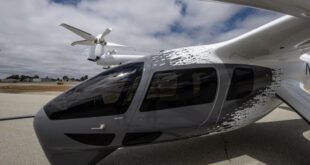(Reuters) – Electric-vehicle startup Fisker slashed its 2023 production guidance on Monday as it struggles to ramp up deliveries and flagged weakness in internal controls over financial reporting, sending its shares down 14% after the bell.
Fisker now expects production of 13,000 to 17,000 electric vehicles in 2023, down from its prior projection of 20,000 to 23,000 vehicles to make sure the company does not sit on too much inventory and to better manage working capital.
“This may be short-term pain and it may not be something that Wall Street wants to hear but it is extremely responsible for us, and it is essential for us that we do this for the long term,” Chief Financial Officer Geeta Fisker said on a post-earnings conference call.
Fisker’s production cut comes amid fears of a slowdown in EV demand, with market leader Tesla CEO Elon Musk warning that high interest rates, meant to cool stubborn inflation, are souring consumer sentiment and cautious commentary from Ford and General Motors.
But Fisker was limited by its delivery and service infrastructure rather than production and demand.
“We have not been able to follow through with deliveries fast enough,” CEO Henrik Fisker said on the call.
“People have paid and are waiting for their cars, and some of them are really getting annoyed,” he said, adding that Fisker was hiring 20-30 people a week, getting more logistics partners and opening new facilities in an effort to ramp up deliveries.
Fisker had delayed its results from Nov. 8, blaming the delay on completion of financial statements and related disclosures on departure of former chief accounting officer.
“In the course of completing the preparation of the report, the company determined that it has material weaknesses in the company’s internal control over financial reporting,” Fisker said.
The EV company reported a loss of $91 million, missing analysts’ estimates for a loss of $75 million, according to Visible Alpha.
EV makers have resorted to price cuts after market leader Tesla started a profit-sapping price war in January to stoke demand.
Fisker cut prices of its high-end Ocean Extreme SUV last month and raised prices of two lower-priced variants in the U.S. and Canada as it responds to “competitive realities in the rapidly growing EV market”.
Fisker’s manufacturing partner, Magna’s Austrian unit made 4,725 units of its Ocean SUVs in the third quarter, up from 1,022 vehicles produced in the prior quarter.
Revenue came in at $71.8 million, while the loss totaled 21 cents, compared with analysts’ expectation for a loss of 19 cents, according to LSEG data.
Larger peer Rivian Automotive posted better-than expected results last week, however, luxury electric-vehicle maker Lucid slashed production forecast to align with the lower number of cars it was delivering.
(Reporting by Samrhitha Arunasalam, Jaiveer Singh Shekhawat and Akash Sriram in Bengaluru and Abhirup Roy in San Francisco; Editing by Shounak Dasgupta and Stephen Coates)
 BeritaKini.biz Berita Viral Terkini di Malaysia
BeritaKini.biz Berita Viral Terkini di Malaysia





